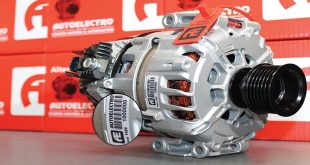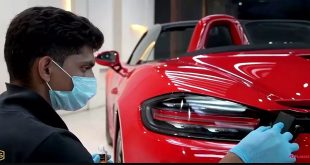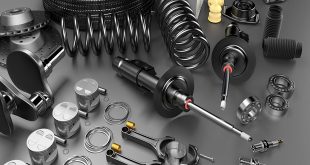When buying a pre-owned vehicle, one may discover that it is an effective method of saving money while acquiring a car. However, it is crucial to remain vigilant and cautious about the various scams that deceitful sellers may attempt. These fraudulent schemes can range from misleading advertisements to undisclosed mechanical problems. This blog will shed light on some of the most prevalent used car scams. Thereby equipping you with valuable knowledge on safeguarding yourself against such fraudulent practices.
Some Common Used Car Scams
Here are some of the commonly used car scams that you should be aware of:
Title Washing
One of the most common scams in the used car market is title washing. In this scam, the dishonest seller alters the vehicle’s title to conceal information like salvage history, flood damage, or previous accidents. Dishonest sellers may attempt to get a clean title for a vehicle with significant underlying issues. This type of scam makes the vehicle appear more desirable to potential buyers.
Always get a vehicle history report from a trusted source to avoid falling victim to title washing. Detailed information about a car’s history is in that report. Details of reported accidents, flood damage, or title branding are also included. Conducting a thorough visual inspection of the vehicle will help you from not falling in the scam. Look for signs of previous repairs that indicate a title washing attempt.
Online Escrow Scam
The rise of online marketplaces has provided scammers with new places to exploit unaware buyers. Online escrow scams involve a seller who claims to use an escrow service to ease the transaction. By artfully deceiving buyers via persuasive means, scammers manipulate them to make payments for an escrow service. This misleading service turns out to be nothing more than smoke and mirrors. This allows these fraudulent actors to illicitly pocket those hard-earned funds.
To avoid falling victim to online escrow scams, always be cautious when sellers insist on using a specific service. Research the escrow service on your own. Verify the registration and existence of the service before payments. It is advisable to use established and reputable online marketplaces. These Marketplaces have built-in escrow systems and fairly listed car valuation online to protect buyers from scams.
Odometer Fraud
Odometer fraud is another prevalent scam in the car market. Dishonest sellers alter the odometer reading to make the vehicle appear to have lower mileage than it does. Lower mileage often translates to a higher resale value. So, this fraudulent practice aims to deceive buyers into paying more for a vehicle.
Always request maintenance and service records with mileage information to protect yourself from odometer fraud. Compare the recorded mileage with the current reading on the odometer for any change. Besides, it is important to scrutinize any indications of damage that do not align with the documented mileage. For instance, one should pay attention to excessive wear on the pedals or driver’s seat. If you suspect odometer fraud, have a trusted mechanic inspect the vehicle thoroughly.
VIN Cloning
VIN cloning is a sophisticated scam in the car market. With deceptive intentions in mind, certain individuals resort to tampering with Vehicle Identification Numbers (VINs), specifically by substituting those belonging to legally registered vehicles with stolen ones. By doing so, these fraudsters intend to pass off the stolen automobiles as legitimate ones.
To protect yourself from VIN cloning, check the VIN in many locations on the vehicle, like the dashboard, engine block, and door frame. Ensure that the numbers are matching each other. Please ensure that the number is untampered and unaltered in any manner. Additionally, get a vehicle history report to confirm the accuracy of the VIN. Ensure it matches the vehicle’s make, model, and year.
Fake Vehicle Inspection
Scammers promote a pre-owned vehicle as having undergone a comprehensive evaluation by a respected inspection service. They may even present fabricated inspection reports that convey a misleading image of a well-cared automobile. Sadly, these purported inspections are deceptive. As the vehicle often harbors undisclosed mechanical or safety issues.
To safeguard yourself from falling prey to these false vehicle inspections. It is important to arrange for an independent examination by a trustworthy mechanic. It is not advisable to rely solely on the inspection reports furnished by the seller.
You should arrange for an independent car inspection to ensure safety and value for your money. By doing so, you can secure an impartial evaluation of its condition and uncover any potential issues that are concealed. In this way, you can avoid investing in an unsafe vehicle and save yourself from any unnecessary financial loss.
Also Read: Facts You Should Know Before Buying a Used Car
Overpayment Scam
Amidst various used car sales transactions lies a disturbing trend known as the overpayment scam. This deceptive practice involves fraudsters acting as sincere buyers who express interest in purchasing a vehicle at an agreed price point. Their deviousness becomes clear once they dispatch payment exceeding this previously settled amount through checks or money orders but concurrently request that sellers reimburse them for the surplus sum sent. Unfortunately for unsuspecting sellers, it later comes to light that these checks or money orders were counterfeit artifacts. So sellers themselves bear the brunt of financial loss.
To prevent becoming an unfortunate casualty of this scam revolving around overpayment concerns, exercise caution when engaging with buyers who pay a sum surpassing your initial asking price in a cheque or money order. Conduct a comprehensive background check on prospective buyers whenever possible to ensure personal safety during transactions. Adopt secure payment methods such as electronic funds transfers or cashier’s checks to diminish the risk associated with fraudulent payments.
Conclusion
It is vital to be aware of commonly used car scams to safely navigate the pre-owned vehicle market. By familiarizing oneself with these scams, one can take proactive measures to safeguard against falling prey to fraudulent practices. It is important to thoroughly research the vehicle’s history and check the car valuation on CARS24. Perform visual inspections and utilize reputable online marketplaces to minimize the risks associated with used car scams. By exercising caution and demonstrating due diligence, individuals can make well-informed decisions and find a dependable used car that aligns with their requirements and financial situation.
 Isaiminia World Breaking News & Top Stories
Isaiminia World Breaking News & Top Stories




